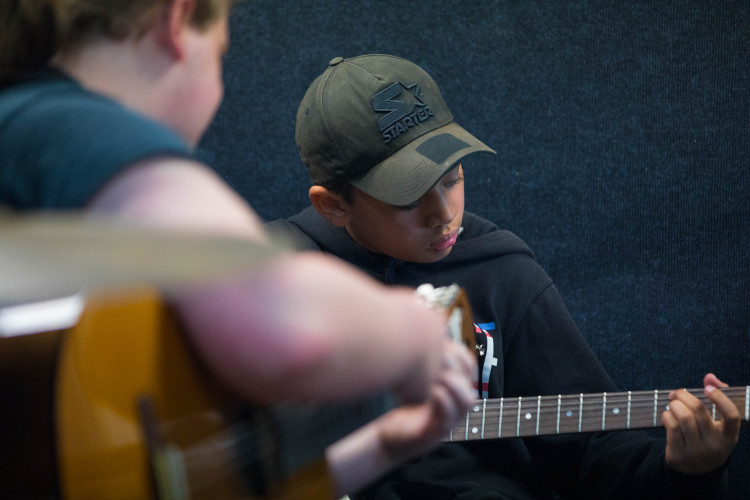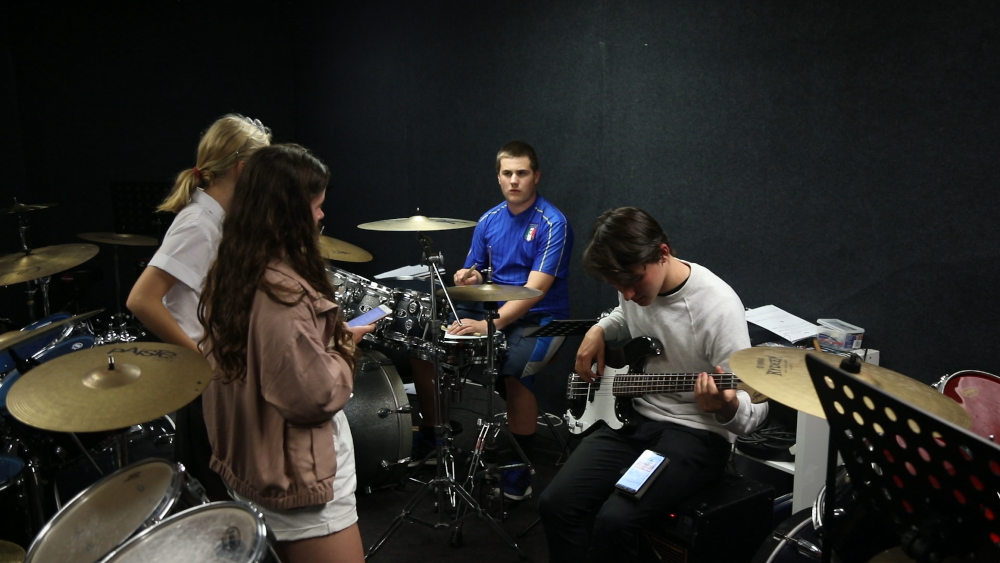Neuroscience Research
Researchers in neuroscience have reported there are learning music benefits to be gained from musical training which can have a dramatic impact on your brain’s structure. It has been found that musical training improves one’s long-term memory for those who start at an early age. Other improvements found were better development of language skills and spatial reasoning.
Dr. Catherine Loveday is a neuropsychologist, and the Principal Lecturer in Cognitive Neuroscience at the University of Westminster, states that, “ Music probably does something unique. It stimulates the brain in a very powerful way, because of our emotional connection with it”.
In addition, from a captivating interview with Dr. Loveday during the British Psychological Society’s Psychology4Students event, she explored why music has such overwhelming power for most people, “It’s part of weddings, funerals, football games, films, exercise, lonely walks… we use it to calm down, get excited and cry to… it’s music”, she said.
She went on to outline how music has demonstrable effects on human behaviour.
- Very young babies in hospitals require less pain medication when they listen to music.
- Sad music makes us spend more money in shops
- Music can affect eating speed, the type of wine we buy
- Whether we’ll give a stranger our number.

How music has measurable biological effects on humans.
At this point she also explained how music has measurable biological effects on humans.
- A study of homeless men who sang together in a choir showed reduced stress and higher immunity with each session.
- Opiates in the brain also play a role. If the effects of opiates in the brain are blocked, people experience no pleasure when listening to music.
- The ‘chill’ effect. It’s the shiver down the spine people experience when hearing particular pieces of music, is also evident in brain scans,
- It has also been observed that changes in body temperature and respiration is also apparent when listening to music.
When asked what is it about music that makes it so powerful? Dr. Loveday answered “humans are innately sensitive to changes in pitch, timbre and rhythm in people’s voices. Our ability to socially connect with people depends so much on our ability to read the musical content of language. Memory is also key. Music helps to tie us to specific autobiographical memories, and our memories of music seem very robust – we need only hear the opening few notes of some songs to recognise them. Just as a good joke will build a sense of what is to come and violate it, music draws on this technique too – building to unexpected changes in pitch or volume”.
Professional musicians have been studied.
When learning to play a musical instrument, the learner goes through a rich and complex experience that involves integrating information from the senses, in particular listening, vision, touch, and fine motor movements. Professional musicians train for many years and so, to a neuroscientist, professional musicians are the perfect people to be studied how the effects of music training impacts the brain structure over the musicians’ life. This field of study in changes to the brain structure is known as experience-dependent plasticity or Neuroplasticity.
Interestingly, she also explained how animals also respond to music.
- Dogs react in an excited way to rock music and calm down to classical
- Milk yields of cows increase with faster music
- Wounds in rats take twice as long to heal when listening to aggressive music
- Chickens have a particular penchant for Pink Floyd.
Links
Further, here are more links which shows how learning music benefits could drastically change your brain for the better.
- http://time.com/3634995/study-kids-en…
- http://www.jneurosci.org/content/27/1…
- https://www.inc.com/melanie-curtin/wa…
- https://www.ncbi.nlm.nih.gov/pmc/arti…
- https://www.ncbi.nlm.nih.gov/pubmed/1…
- https://www.telegraph.co.uk/news/scie…
- http://www.jneurosci.org/content/27/1…
- https://news.stanford.edu/news/2005/n…
- https://news.vanderbilt.edu/2008/10/0…
- https://www.newscientist.com/article/…
- https://www.theguardian.com/education…
- https://search.proquest.com/openview/…
- https://www.telegraph.co.uk/news/ukne…
- https://www.inc.com/john-rampton/the-…
- https://www.ncbi.nlm.nih.gov/pubmed/1…
- https://www.ncbi.nlm.nih.gov/pubmed/1…
- https://www.ncbi.nlm.nih.gov/pmc/arti…
- http://www.jneurosci.org/content/27/1…
- http://www.jneurosci.org/content/23/2…
- http://www.jneurosci.org/content/27/1…
- https://www.sciencedirect.com/science…
If you are ready to get started or wanting to learn more about our service, you can get in touch by filling in our Contact form.

